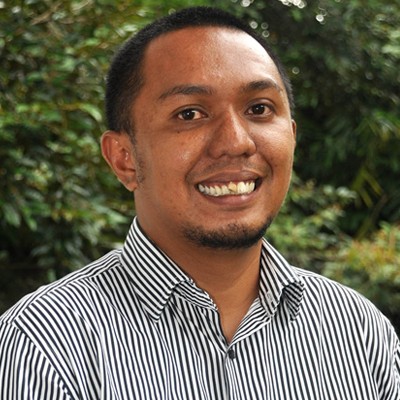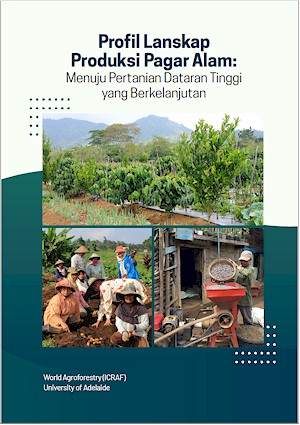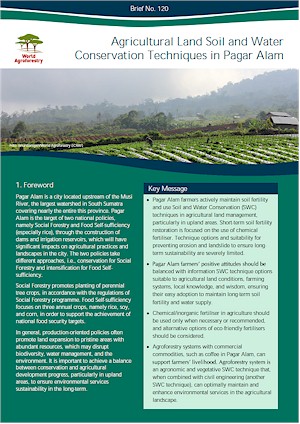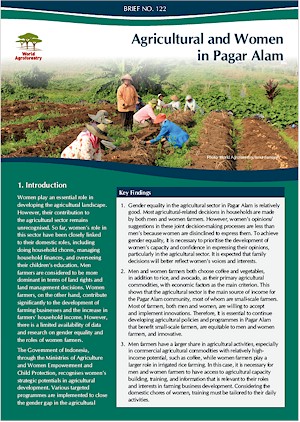Description
In the upland regions across Indonesia, many smallholder farmers live within or close to the resource-rich forest area, cultivating agroforestry or intensive system, often on steep slopes. Most of these farmers utilise mixed-farming practices, which can simultaneously provide food and crops as well as generate various ecosystem services for the broader population. However, productivity is generally low, and market access is a serious barrier. Farmers’ strategies to manage their livelihood will be influenced by policy and programs that affect their agricultural practices and further shape their landscape. An in-depth understanding of the farmers’ agricultural practices and the influence of policy and programs towards their landscape management strategy in the upland is necessary to formulate policy recommendations that target both the local welfare and the sustainability of the upland area.
Agricultural Policy Research To Support Natural Resource Management In Indonesia’s Upland Landscapes (IndoGreen) is an action-research project conducted in three upland areas of Sumatra and Java, Indonesia. IndoGreen aims to provide evidence-based recommendation on policy interventions that would enhance long-term agricultural productivity, reduce negative environmental externalities and improve household welfare in Indonesia’s upland catchments. This project collaborates with three existing development projects attempting to introduce improved agricultural practices to address externalities and improve natural resource outcomes in upland catchments. The three proposed case study catchment sites are: Merangin District, Jambi; West Bandung District, West Java; and Pagar Alam District, South Sumatra.
Based on the three sites proposed above, ICRAF will support the Pagar Alam District, South Sumatera. Pagar Alam City is a peri-urban upland in the upper catchment of Musi Watershed, the largest watershed in South Sumatra Province. Two national policies are implemented in the upland of Pagar Alam: the national Social Forestry programme (Hutan Kemasyarakatan); and the food security programme, which is overseeing the construction of an irrigation reservoir that will affect the farming practices and ecological conditions of the landscape.

























